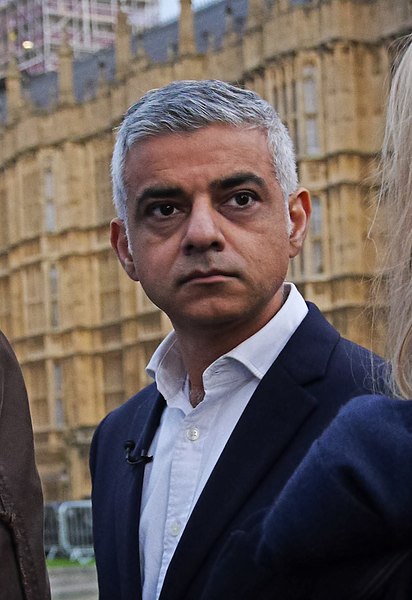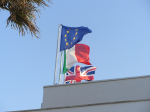
The newly re-elected Mayor of London, Sadiq Khan, today commits to putting a green recovery and policies to improve London’s air and halt the climate emergency at the heart of his second
term. As one of his first acts as the re-elected Mayor he has today recommitted to expanding the world’s first Ultra Low Emission Zone (ULEZ) in October this year to reduce toxic air pollution and protect public health.
The expanded ULEZ will cover an area 18 times larger than the central London Ultra Low Emission Zone and will affect older, more polluting vehicles that don’t comply with strict emission standards. Although around 80 per cent of cars are already thought to be compliant, it is estimated that 100,000 cars, 35,000 vans and 3,000 lorries could be affected by the expanded zone and tighter standards every day.
The central London ULEZ has been transformational since its introduction in April 2019, helping to reduce roadside concentrations of the poisonous gas nitrogen dioxide in the central zone by nearly half. Expansion will extend these benefits to millions of Londoners, both inside and outside the expanded zone.
While significant progress has been made, with a substantial reduction in the number of Londoners living in areas exceeding legal limits for NO2, tens of thousands of Londoners still breathe illegally polluted air and 99 per cent of Londoners live in areas exceeding the World Health Organization (WHO) recommended guidelines for PM2.5, which are much tighter than the legal standards.
Research shows that those exposed to the worst air pollution are more likely to be deprived Londoners and from Black, Asian and Minority Ethnic communities. There is also emerging evidence linking air pollution with an increased vulnerability to the most severe impacts of COVID.
World-leading measures, including the central London ULEZ, introduced by the Mayor in his first term had already cut the number of state schools with illegal levels of pollution by 97 per cent – from 455 schools in 2016 to just 14 in 2019, prior to the Covid-19 pandemic.
The ULEZ expansion is not only vital to achieving compliance with legal limits for air pollution but is also a key step towards meeting the more stringent health-driven World Health Organization guidelines for toxic particulate pollution by 2030.
These are challenging targets, and to meet them we need to tackle all sources of pollution. The ULEZ is therefore an important part of a wider suite of world-leading measures to improve London’s air quality. Other action includes cleaning up London’s bus and taxi fleet, reducing emissions from construction and action to promote the uptake of zero emission vehicles.
These bold measures will deliver a major improvement to Londoners’ health by reducing the toxic air pollution that is currently responsible for thousands of premature deaths and other serious conditions. A recent poll shows that it is not just the Mayor who thinks this is the right approach, with 68 per cent of people polled supporting charges to discourage the most polluting vehicles and only 18 per cent opposed*.
Mayor of London, Sadiq Khan, said: “I pledge to be the greenest Mayor London’s ever had with a mandate from Londoners to put the environment and climate policies at the heart of my second term in office. Today I am reaffirming my commitment to speed up the cleaning of London’s toxic air.
“In central London, the Ultra Low Emission Zone has already helped cut toxic roadside nitrogen dioxide pollution by nearly half and led to reductions that are five times greater than the national average. But pollution isn’t just a central London problem, which is why expanding the ULEZ later this year will benefit Londoners across the whole of the city and is a crucial step in London’s green recovery. There is no time to waste. We know pollution hits the poorest Londoners the hardest which is why I’m doing everything I can to improve the health for all Londoners.”
Jemima Hartshorn, Founder of Mums for Lungs, said: “Mums for Lungs has campaigned for an expansion of the ULEZ for over three years now, so we are glad that this scheme will be implemented very soon. The ULEZ in central London has really reduced NO2-pollution across the area, and more children will benefit from ULEZ expansion. But more is needed to ensure that London meets World Health Organization guidelines, so we call on the Mayor, national government, councils and business to work together to ensure breathing no longer harms the health of London’s children.”



































